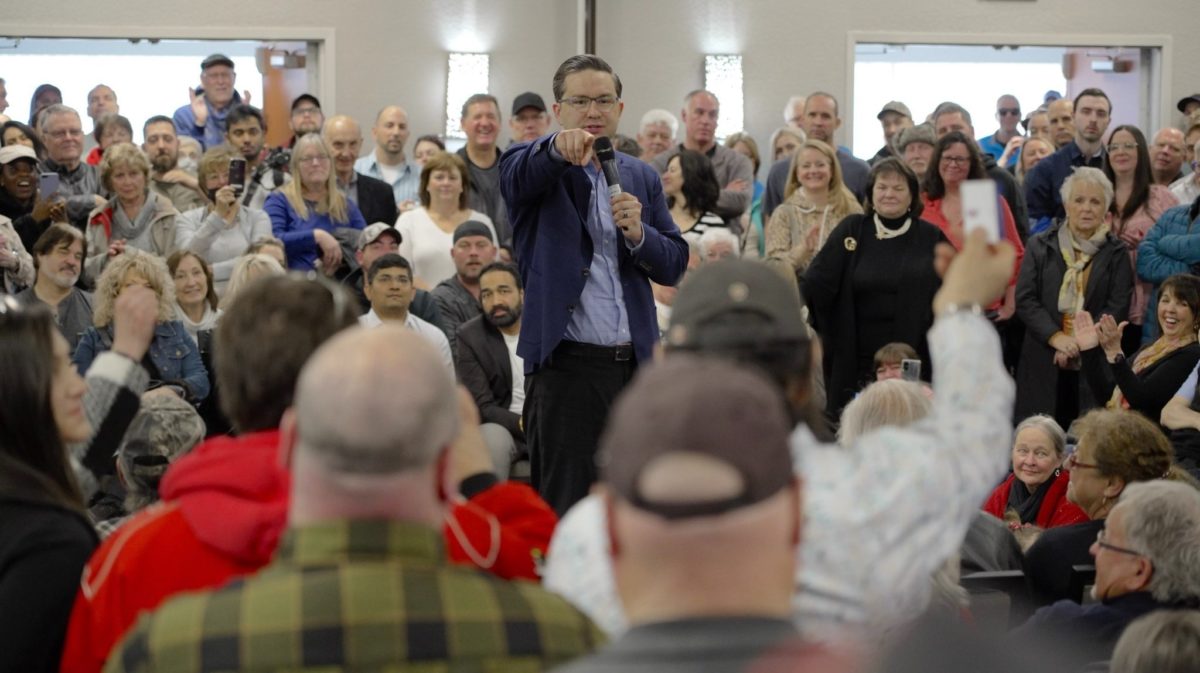The Roxham Road quagmire is a fine example of Pierre Poilievre’s dilemma. It almost makes one sympathetic.
The federal Conservative leader has cast himself in the mould of a right populist leader, like Trump or Orban. For what it’s worth, I think the rightist he’s most like is U.S. congressman Jim Jordan, known for making harsh attacks ripe with personal contempt during hearings.
We’ve seen Poilievre, who’s been little in adult life except a parliamentarian, replicate this style in the House and committees. It works for him since it seems authentic and you don’t win elections by not being yourself, as his Conservative predecessors, Andrew Scheer and Erin O’Toole, learned.
The problem is the vessels that this style expresses itself in elsewhere, like being anti-immigration and at least covertly supportive of racism, don’t play as well here. They exist, even thrive, but aren’t deep or wide, partly because we lack an extensive nurturing soil for what once was called nativism, and now, white nationalism. A third pillar, anti-wokeism, depends largely on the first two.
Poilievre’s substitute for these substantial focuses is — Justin Trudeau, as a sort of Veg-o-matic catch-all for, literally, whatever is wrong. Inflation, climate, COVID, airports, violence, and everything being “broken” or “worse.” His rhetorical method is to eliminate all other possible causes, leaving only “Justin.”
His Tuesday press conference about Roxham Road showcased his dilemma. Roxham is the little street leading from New York state into Quebec where refugee claimants cross and are shepherded by Mounties into the claims process.
If they went to official crossings they’d be turned back based on the Safe Third Country Agreement between Canada and the U.S. It is an ugly little deal meant to scuttle the universal right of beleaguered souls to apply for refugee status anywhere they wind up and be allowed a fair shot at getting it.
Poilievre held the presser to demand Roxham be closed within 30 days. Or what? Who the hell knows? But “a real country has borders.” (Whistle, whistle.) He avoided calling for a wall. And he spent at least as much passion saying he loves our immigration system and it’s the best in the world.
This is a tricky straddle. It’s a bit like Stephen Harper, who spent much time in power building an image supportive of minorities and then, in the electoral crunch of 2015, got scalded by his own Barbaric Cultural Practices tipline. Whoops.
I’m aware the latest poll, by Abacus, shows Poilievre in a mild rise while Trudeau is in small decline. This is mostly due to a desire for change (after an exhausting stretch) plus deep anti-Trudeauism, bordering, heh, on phobic.
But one good poll deserves another. A new Nanos poll shows 4-in-10 Canadians say there isn’t enough policing at “irregular” crossings like Roxham. My point? That’s a 17 per cent decrease in alarm since 2018. Canadians are getting less worried.
Who knows why? Stories of refugees dying in snowstorms when they tried crossing in Manitoba? The way Syrian refugees didn’t destroy Canada as we knew it? But it should dismay Poilievre. Canada is infertile ground for covert anti-immigrationism, though anti-Justinism still has potential.
So I’m not saying there’s no route to power for Poilievre. But it isn’t the right-wing populist one to which he’s most naturally inclined.
Besides, the whole Roxham Road thing could be scuppered by the Supreme Court this summer, God willing, if they rule the Safe Third Country Agreement unconstitutional.
Final general comment: Roxham Road may be a huge mess for Canada but not nearly as much as for refugees. It all began post-World War Two when masses of displaced people were left stateless, without legal protections. It led to certain universally agreed rights.
More recently, globalization granted far more rights and free movement to capital than to humans. Meanwhile, places like Modi’s India and Palestine have forced new questions about statelessness onto the agenda. This is not a matter confined to Roxham Road.
This column originally appeared in the Toronto Star.



